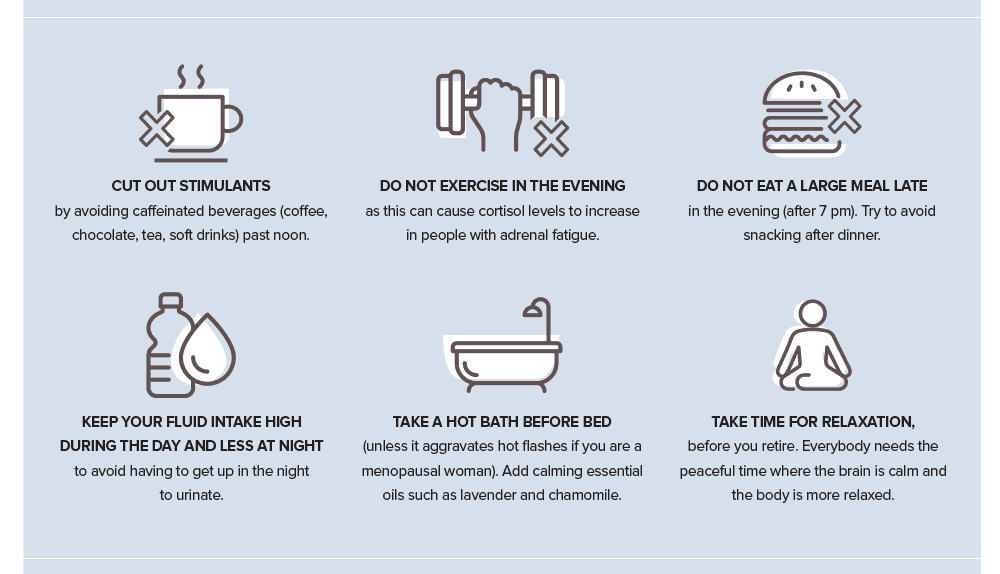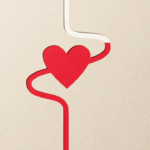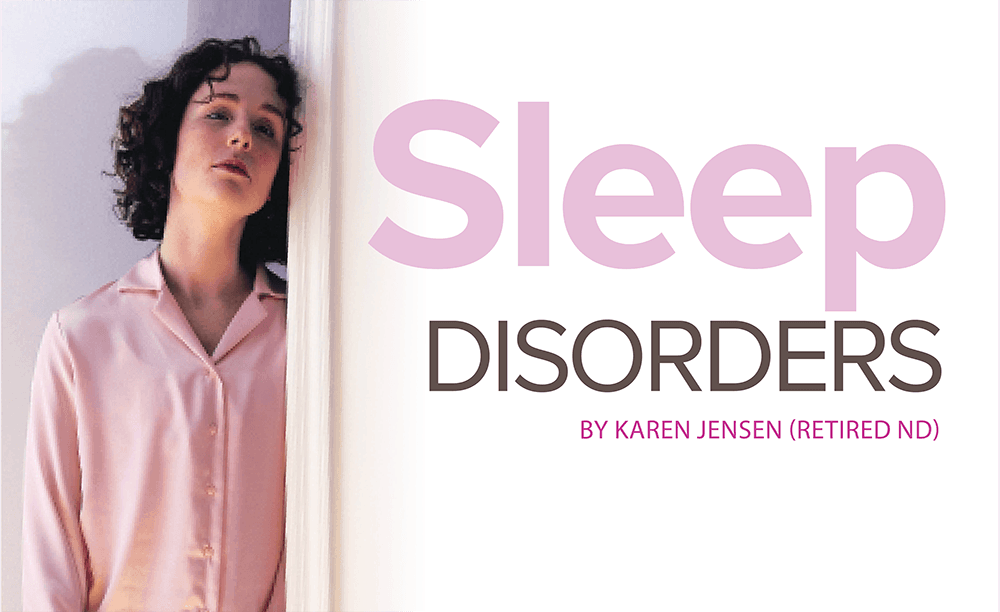
According to Statistics Canada, one in seven Canadians have insomnia, the inability to fall asleep, stay asleep, or experience restorative sleep.

Possible Causes of Insomnia
There are many possible causes of insomnia including the following:
- Psychological conditions – Sleep disturbance is a common feature of emotional disorders. For example, 90% of depressed people have insomnia. However, insomnia is also a major risk factor for depression. It is often unclear which condition triggers the other.
- Gut-brain inflammation – Anxiety and depression are common causes of insomnia, and new research shows a direct link between gut microbiota and mental health disorders such as anxiety and depression.
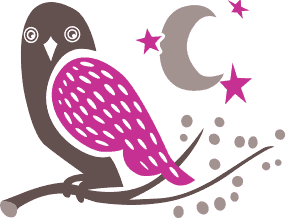
- Alcohol – An estimated 10–15% of chronic insomnia cases result from substance abuse, especially alcohol, cocaine, and sedatives. For most people, one or two drinks a day pose no problem and may even help initiate sleep.
- Medical conditions – Several conditions contribute to or cause insomnia, including chronic pain (e.g., arthritis, back pain), cardiovascular disease, respiratory diseases, gastrointestinal disorders, hormone conditions, and some neurological conditions.
- Medications – Several medications cause insomnia. If your insomnia seems to be associated with when you started taking a medication, talk to your health care practitioner.
- Nightly leg problems – Leg disorders that occur at night, such as restless leg syndrome or leg cramps, are very common and are an important cause of insomnia.
- Shift work – Shift work throws off the body’s circadian rhythm and may lead to chronic insomnia.
- Blood sugar imbalances – Blood sugar imbalances are a common – though less recognized – cause of insomnia.
- Menopause – Another type of insomnia very commonly seen is sleep disturbances as a result of the menopausal transition.
- Sleep apnea – It is important to rule out sleep apnea in anyone suffering with insomnia. Elevated cortisol due to stress and HPA dysregulation is a main cause of chronic insomnia. Insomnia worsens HPA dysregulation and increases cortisol, resulting in a vicious cycle that is difficult to control.

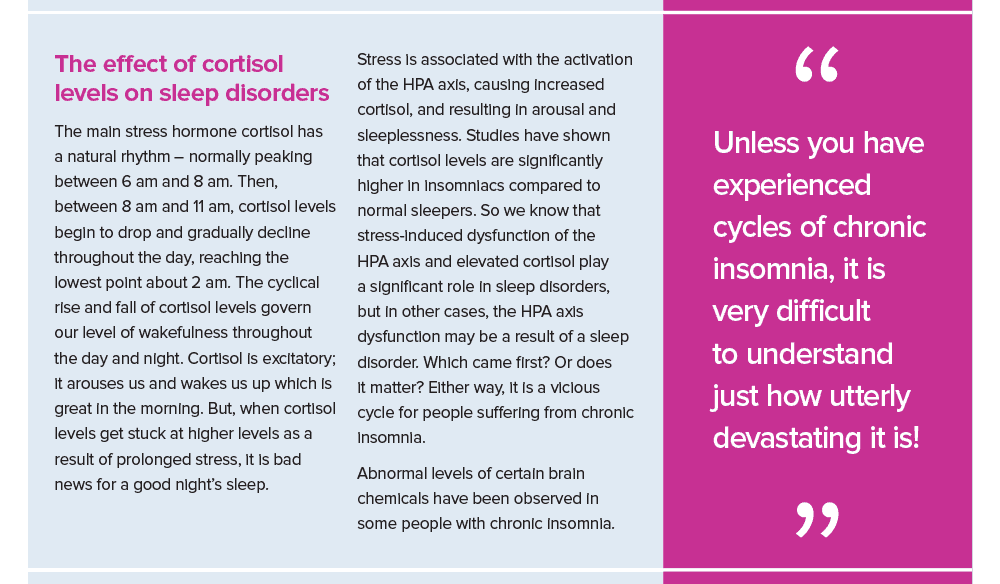

Support for Insomnia
- AdrenaSense® provides stress reduction support to help prevent the over-production of stress hormones that can keep you wired even though you are exhausted from lack of sleep. An effective way to manage sleep problems due to cortisol dysregulation is to ensure the adrenal glands are supported by proper nutrition. Adrenal regulation is necessary in order to stop the vicious cycle of stress and insomnia. Stress is a very real factor for many people with insomnia. Insomniacs and those who feel “tired but wired” should take most supplements – including adrenal support – in the morning. Dosage: 1 capsule twice daily with food or as directed by a health care practitioner.
- SomniSense™ contains the important herbs passion flower, California poppy, hawthorn, skullcap, and linden flower to help ensure a good night’s sleep. Refer below for more information about individual ingredients. Dosage: 2–4 capsules daily 1 hour before bed.
- Passion flower (Passiflora incarnate) has been used traditionally for anxiety disorders, general nervousness, attention deficit hyperactivity disorder (ADHD), and insomnia. Several controlled studies have demonstrated enhanced sleep benefits for adults with insomnia.
- California poppy (Eschscholzia californica) is used to treat insomnia, mood disorders, and nervous agitation, and to promote relaxation. It is also effective for pain relief, specifically nerve pain.
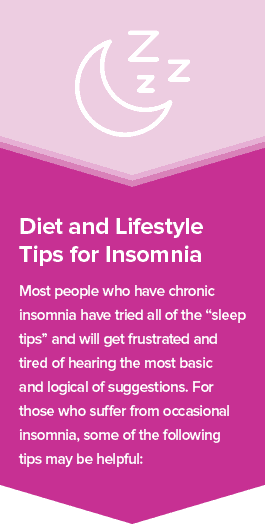
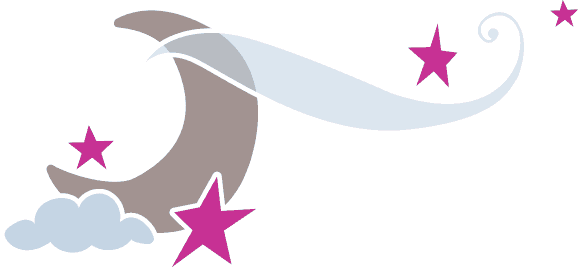
Hawthorn (Crataegus oxyacantha) has been used traditionally as a cardiovascular tonic. New research indicates that hawthorn has antioxidant properties and is effective in treating stress-related disorders such as nervousness and anxiety that are often the underlying cause of insomnia. This herb is usually used in combination with other herbs in the treatment of insomnia. Linden flowers (Tillia cordata) have traditionally been used to soothe nerves and to treat conditions associated with stress, including anxiety and insomnia. Skullcap (Scutellaria lateriflora) has been used for centuries as a relaxant and as a therapy for anxiety, nervous tension, and insomnia. Studies show that American skullcap has significant antioxidant effects, and may help protect against disorders such as Alzheimer’s disease, anxiety, and depression.
- Melatonin helps maintain the body’s circadian rhythm, an internal 24-hour clock that plays a critical role when we fall asleep and when we wake up. Dosage: start with 1–2 mg at bedtime and if necessary increase up to 5 mg.
- Valerian (Valeriana officinalis) has been proven beneficial for sleep disorders, especially those associated with stress and anxiety. Dosage: 400–700 mg daily of a solid root extract 1 hour before bed.
- Pharma GABA™ contains GABA, the most important inhibitory neurotransmitter in the brain. It acts like a brake in times of increased stress, eliciting a sense of calm. Low levels of GABA have been linked to anxiety, depression, and insomnia. Dosage: 100–200 mg 2–3 times daily. As a general guideline, it is recommended to take no more than 3000 mg within a 24-hour period.

Additional support for insomnia
Magnesium has been found to be effective for treating depression and anxiety, insomnia, short-term memory loss, irritability, and agitation. Dosage: 200–400 mg daily for capsules. MagSense™ is a source of magnesium bisglycinate: 6–12 mL of powder daily. 5-hydroxytryptophan (5-HTP) may prove to be better than melatonin at treating insomnia. Dosage: 100–300 mg daily.

